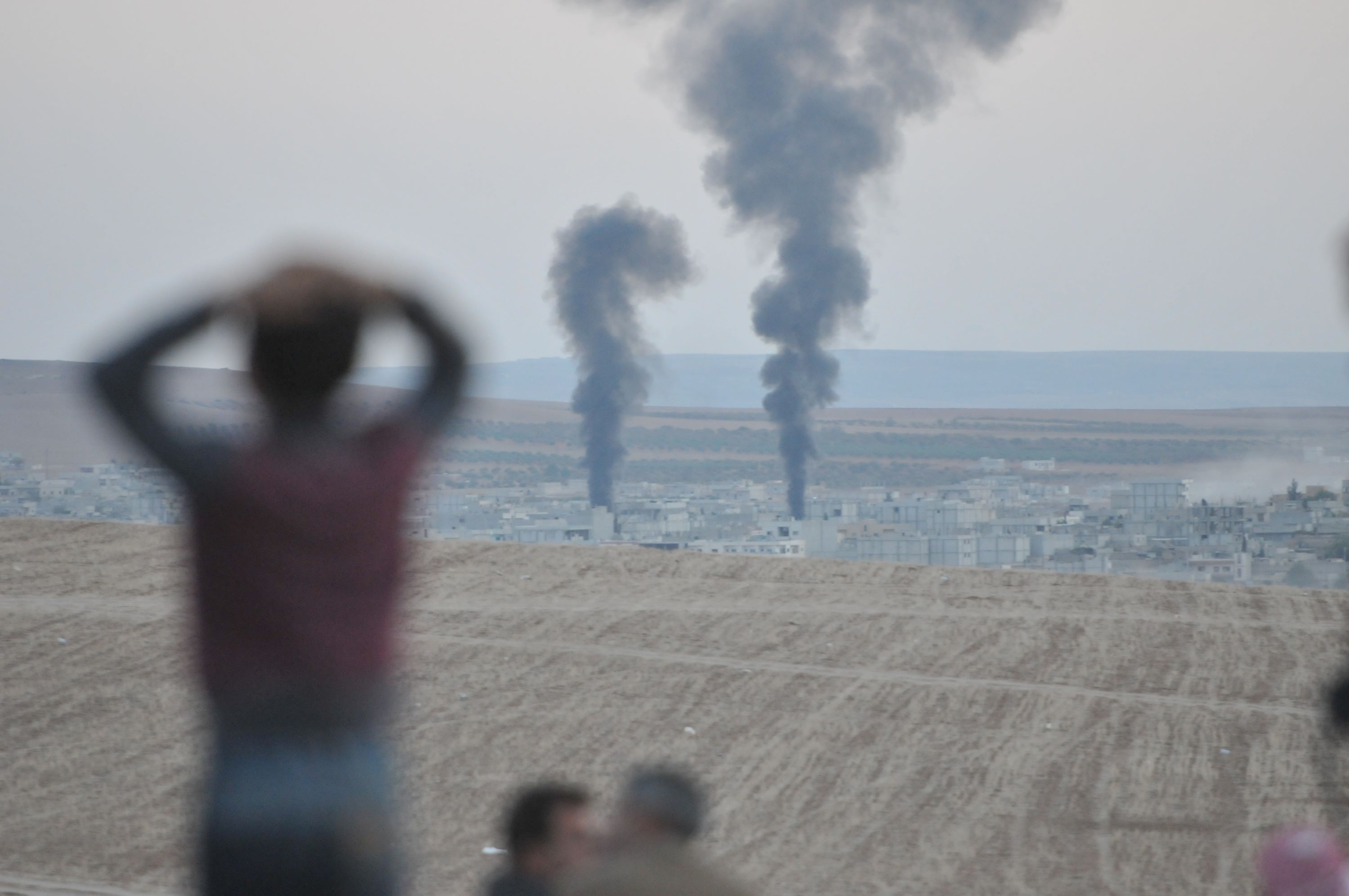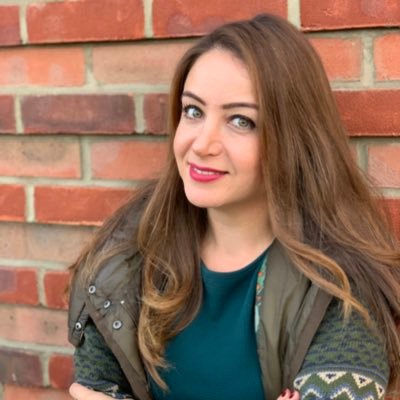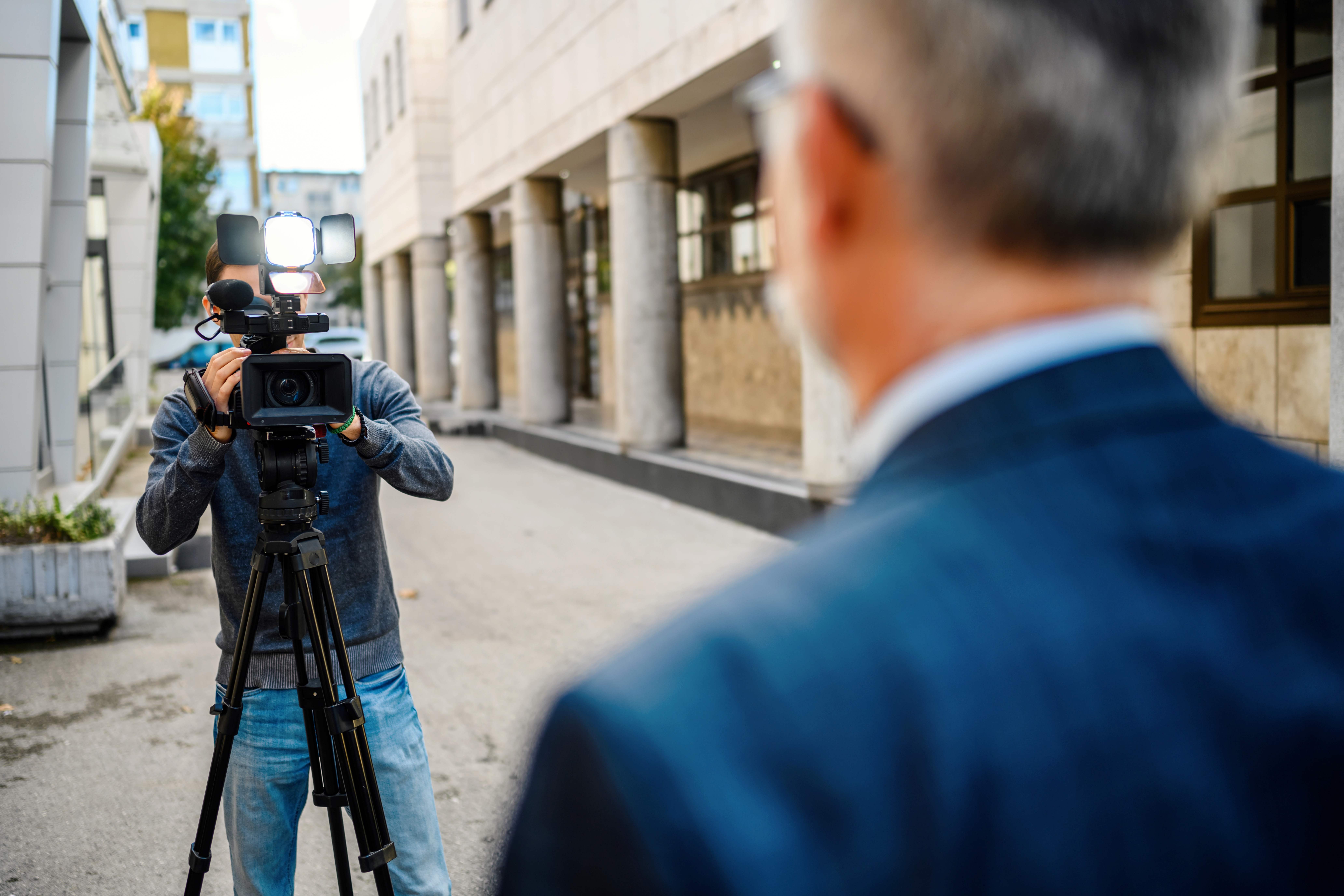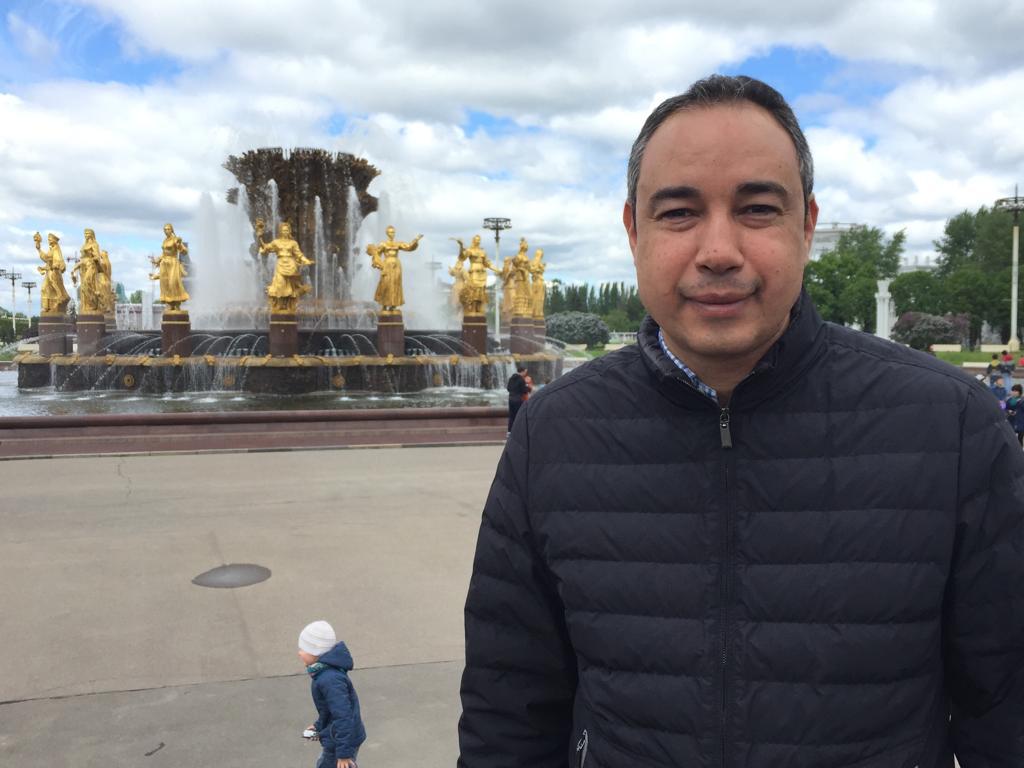The 11-year war in Syria has shone a light on the struggles of local journalists who are often dismissed as ‘mere’ activists and whose plight is largely ignored by the international community.
A man in his 50s is shouting “We are peaceful, we are peaceful!” in a shaky and very low-quality mobile video filmed in 2011. He is trying to be heard over the noise of guns.
His act does not stop the shooting, nor the advance of the uniformed security officers coming in his direction. They get closer and closer towards him, but he keeps filming.
He continues, even when they stand face to face and threaten him with a rifle. He screams: “The world needs to see what is happening in Deraa. Shoot me, shoot me now! I won’t stop filming. The world must see.”
Sadly, the world can no longer see - the video, which was posted to YouTube, has since been deleted.
A ‘sense of naivety’
At the start of the Syrian revolution in 2011, many Syrians thought that showing the world the brutal reality of the war in their homeland would draw the world’s attention and lead to a change for the better.
They paid a high personal price to reveal how the security forces were shooting down peaceful demonstrators at funerals. They documented with their mobile phones how security forces tortured those who dared to dissent.
It was a shout in the dark, a plea to the international community to help them. This faint hope was the main motive for many students, ordinary grocery owners and carpenters to raise their mobile phones and document the harsh experiences they endured at the hands of the Syrian regime.
But things have changed over the years as war continues to unfold. These noble motivations that pushed political activists to become media activists are not the same as they once were. The mediums they initially used to tell these stories of abuse and violation of rights have changed too.
Activists are now perceived in a very different way by the public and the hazards they face are much more severe. Even some of the main principles of journalism such as objectivity have been redefined in the Syrian context. For local journalists, there are far more considerations to be taken and risks to be calculated compared to their foreign colleagues.
We asked ourselves: 'Why are we risking our lives to do journalism?' Frankly speaking, I still don’t know the answer
The motto, “tell the world”, ceased being the main incentive for these activists. Earlier they would risk their lives to report on a story. There was almost a sense of naivety.
I am one of these activists. Little did we know at the beginning of the revolution that the world was capable of ignoring our suffering regardless of how immense it became. Now we have come to understand that. This brutal realisation disappointed us.
Our expectations rested on the hope that the global community would help us. This was dashed. This coming of age changed our thinking and our expectations, especially after the chemical massacre committed by the Syrian regime in a Damascus suburb in 2013.
Some 1,500 persons were brutally killed by the government in one day. This experience led many of us to question the very thing we were doing as media activists. We asked ourselves: “Why are we risking our lives to do journalism?” Frankly speaking, I still don’t know the answer.
Documenting and recording current events is a revolutionary duty for many media activists. This is perhaps the only way they know how to do something for their people and motherland.
Some of those who initially rose up and documented the revolution are still working as journalists inside Syria. This is what they know. This is the only way they can make a living now.
Some are seeking fame, which is dangerous in war zones. Others hope that through journalism, they will help to stop the powerful from manipulating reality and rewriting history. They have refused to accept the regime’s narrative of history unfolding.
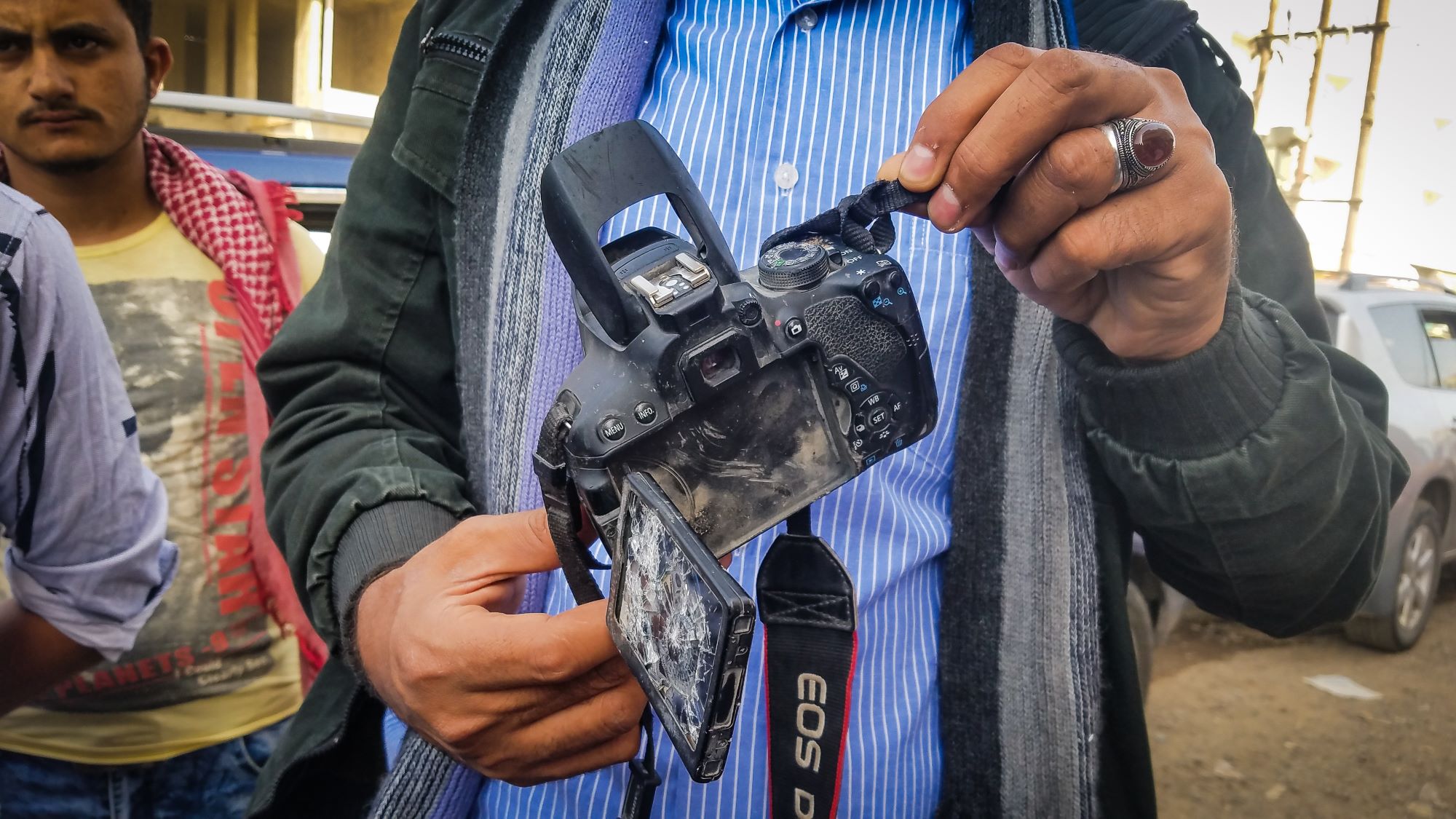
From heroes to 'greedy exploiters'
The shift in the motivation for becoming media activists resulted from the disillusionment over many years, which had a profound change on these young people. It also changed the way their community viewed them.
In 2011, those reporting from the areas controlled by the Syrian regime as well as the areas revolting were perceived as the only window out of this big prison called Syria.
At this stage, fear dominated the relationship between media activists and their sources. Anyone who spoke to the media was the first target of the regime’s forces. If caught, you could easily end up spending the rest of your life in one of the many secret dungeons run by one of the regime’s various security departments.
As the revolution got steam and the rebels gained control of some areas, people were more willing to speak. There was a sigh of relief. People were more relaxed when dealing with media outlets.
Little did we know at the beginning of the revolution that the world was capable of ignoring our suffering. Now we have come to understand that. It was a brutal realisation
Journalists were seen as leaders in their communities. It was a badge of honour. At the different rebel forces checkpoints, the phrase “we are media activists” was enough to get you through with a big salute from the fighters!
However, the regime started using extreme violence against civilians as well, and as the years passed, the attitudes of our people towards citizen journalists changed. They were now subject to violence perpetuated not only by the regime, but sadly also by the very people they sought to help.
Media activists were now seen beaten or even shot at by angry crowds during their attempt to film or take photographs of a massacre or the aftermath of an airstrike. Sometimes the crowds would accuse media activists of “using the public misery” to get paid for “blood” images.
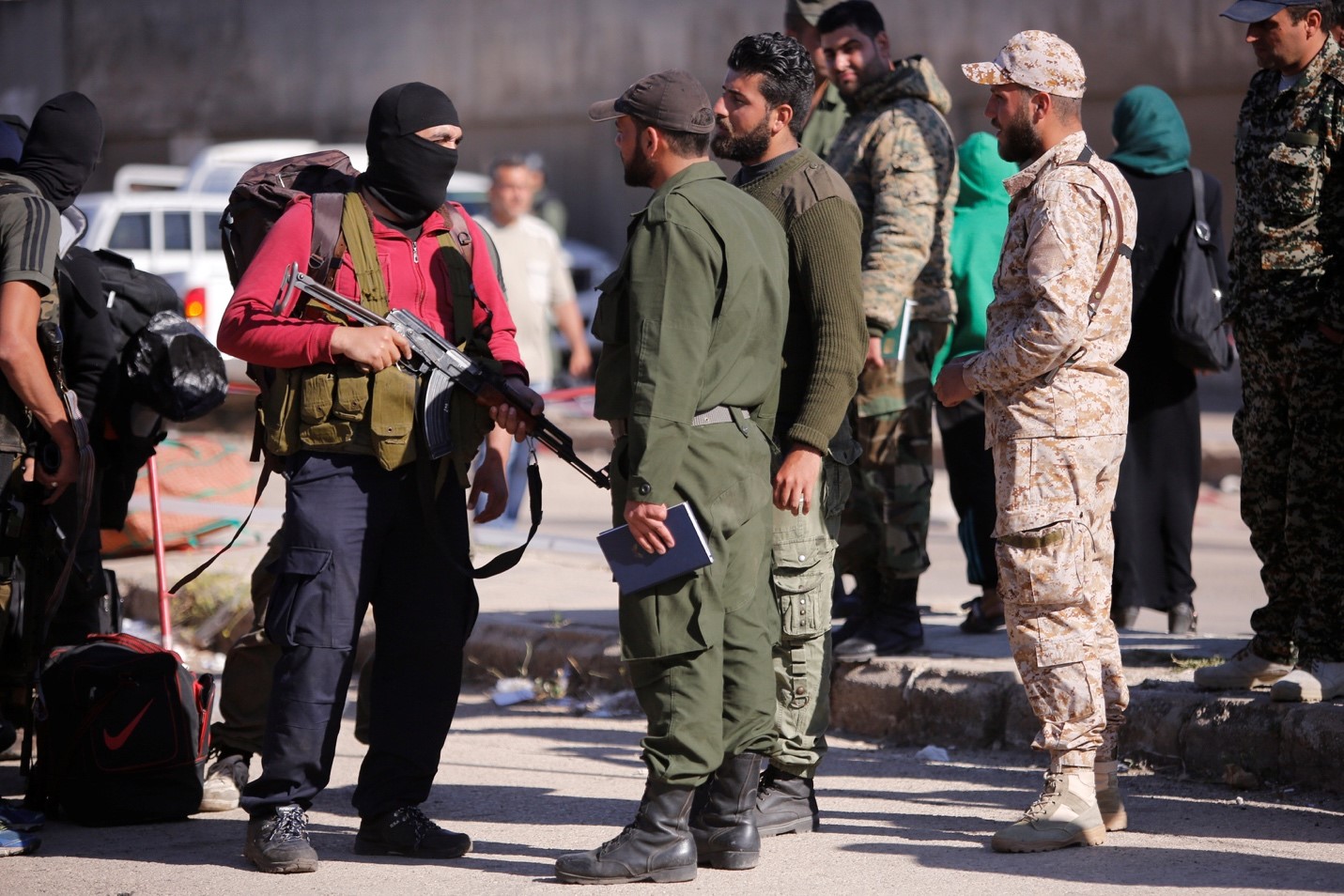
The rise of Islamic State group (ISIL) made a bad situation worse. Fear spread like wildfire. And just like the regime, the first target for ISIL were citizen journalists.
Kidnappings, extortions and murder of journalists became a daily occurrence. “Thieves break the surveillance cameras before stealing,”; this was a lesson we learned the hard way. In other words, anyone who documents the crimes will become a target.
Therefore, this criminal group was equally quick to come after us too. Ironically, ISIL’s wanted list of journalists was leaked and revealed to be identical to that of the regime.
During these upheavals and dangerous times, new measures had to be taken to protect ourselves. Media activists had to adapt by changing the tools and habits used to report each stage of the revolution.
Spy and mobile cameras became widespread. They used fake names and fake accounts to access and post on social media platforms such as Facebook, Skype and Twitter. Content was shared anonymously.
Using real names, professional cameras were reserved for those few who became contracted correspondents and credited freelancers with local, Arab and international media outlets. Many held onto their fake identities and turned to the written press to report on sensitive and controversial matters.
We found ourselves between a rock and a hard place. On the one hand, there was the rule of extreme groups that imposed censorship and severe restrictions on freedom of movement and access to the people. People were scared. They could not speak freely anymore. On the other hand, we faced the constraints and stranglehold of the regime.
Ironically, ISIL’s wanted list of journalists was leaked and revealed to be identical to that of the regime
It did not take long before Syria topped the list of the deadliest countries for journalists. In 2015, the Committee to Protect Journalists (CPJ) classified Syria as the most dangerous country for journalists to work in, and for a good reason. Syrian media activists had a long list of journalists who were tortured, maimed, shot, arrested or killed. Hasan Azhari was one of those tortured to death by the regime. Bashar al-Assad’s government forces have killed media activists and civilians indiscriminately using so-called barrel bombs. Basel Shehada died in such an incident while on duty.
Russian missiles fired from a jet killed Wasim Al-Adel. ISIL blew up journalists using car bombs and kidnapped Obaida Batal and Ossama Hassan. Many were never seen again. Others were slaughtered.
Journalists were hunted in Syria and outside of Syria. Some were literally assassinated with a silencer gun in a neighbouring country. Any wrong move or decision could get you killed if you were a media activist or local journalist.
You had to think long and hard of where to live, with whom to work, and what to report or not. The number of hazards rocketed. Currently, CPJ statistics show that 139 journalists have been killed in Syria since 2011.
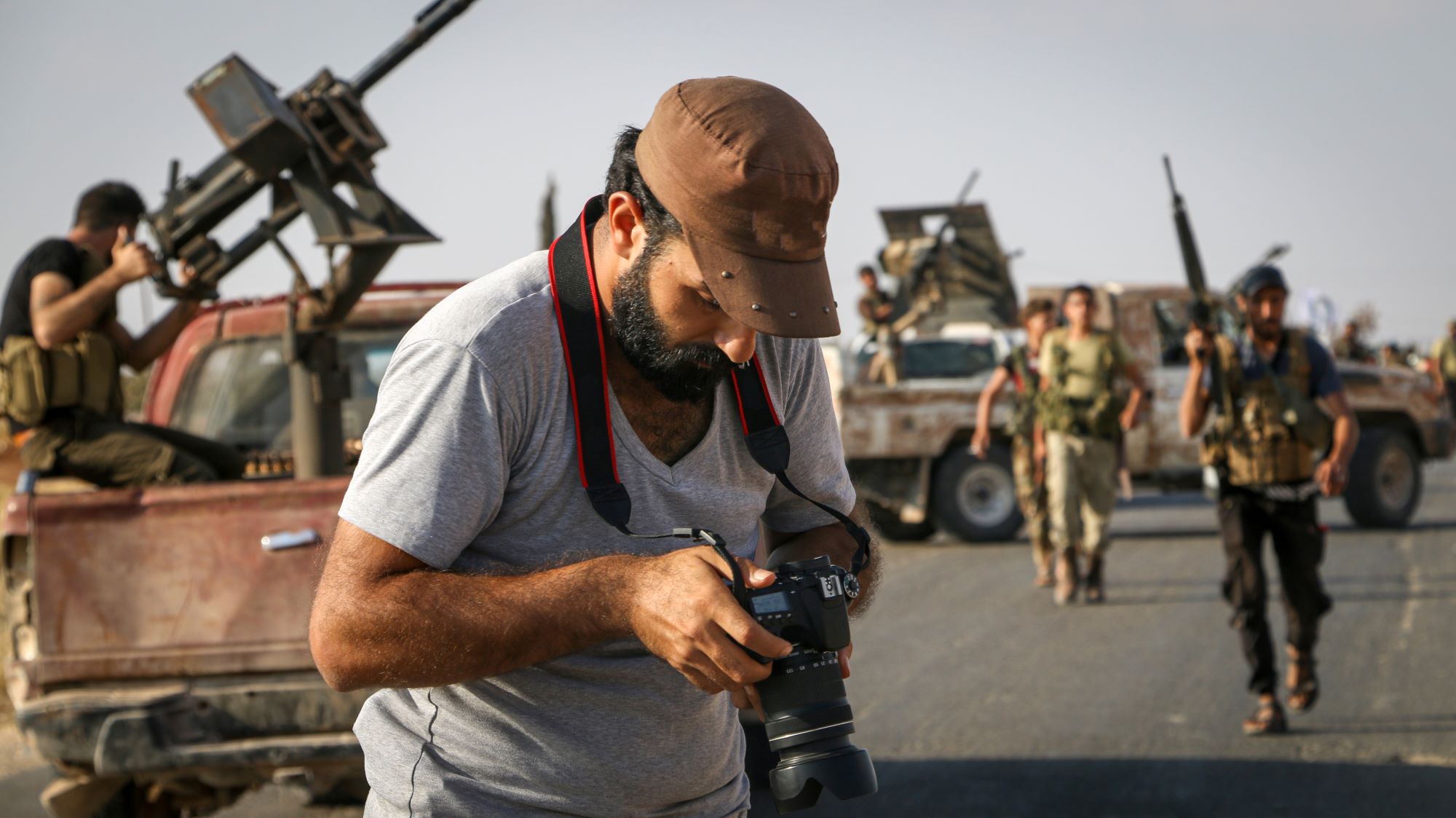
Tortured for telling the truth
Despite all the sacrifices made by what many call Syrian “media activists”, they are still being treated unequally.
They are not considered as actual journalists by most, if not all, international media outlets. We are told this is because they are not “objective” or “neutral”.
What does “objective” mean in the Syrian context? Does being “objective” when covering Syria mean giving voice to a war criminal and his propaganda, and allowing the regime to justify their bombing of civilian areas, schools and hospitals? I do not believe the BBC, for example, would remain impartial to a latter-day Hitler who laid siege to their homeland or a neighbouring country.
How can you be “neutral” when you live under a regime where telling the truth is considered a crime punishable by any means necessary?
You can have your bones broken, get choked, have a cigarette stubbed out on your eyelids or be subjected to any other means of creative torture. Let us imagine what would happen to a western journalist if they try to be neutral when reporting on ISIL. What will happen if they feel obliged to quote from Abu Bakr al-Baghdadi, ISIL’s self-style Caliph, to balance the “claims” and “allegations” of his victims?
We are not considered as actual journalists by international media outlets. We are told this is because we are not 'objective' but what does 'objective' mean in the Syrian context?
I believe objectivity and neutrality are applicable terms if and when you report on two political strands, economic changes, social affairs, and so on. These standards cannot be applied in the same way when you have a tyrant proudly boasting about his forces murdering children while they are taking their exams.
On the contrary, being biased towards humanity and human rights is nothing to be ashamed of, as far as I am concerned. For me this is what journalism is all about.
Theoretical definitions are not the only dispute between local journalists in war zones and their international counterparts. Foreign journalists have to make little to no effort to gain their credibility in the eyes of international media. They can travel freely. They have the backing of their embassies if they need help. This is in sharp contrast to the locals, who are mostly targeted by their own government, because they are journalists.
As a local journalist reporting on war, you are not afforded the luxury of distance from the people you are reporting on. This applies also to your sources. The sources you quote and the numbers of dead reported in the news are not far away and unfamiliar.
They are your classmates, relatives, the girls and boys you had a crush on when you were in high school. They are the friends you spent hours with watching silly TV shows. They are people you talked to reminiscing about old memories until the crack of dawn.
You are part of the story. It engulfs all aspects of your daily life. At the outset, you feel a deep pain and sorrow every time you report on a story. Despite this, our human instinct and coping mechanisms kick in.
In order to be able to carry on with our daily lives, we eventually become numb. When you receive news of your uncle's death, for example, you ask how. Then you are told he died of cancer. Your response is surreal: “Ah ok great, so he was not turned into pieces by a missile.”
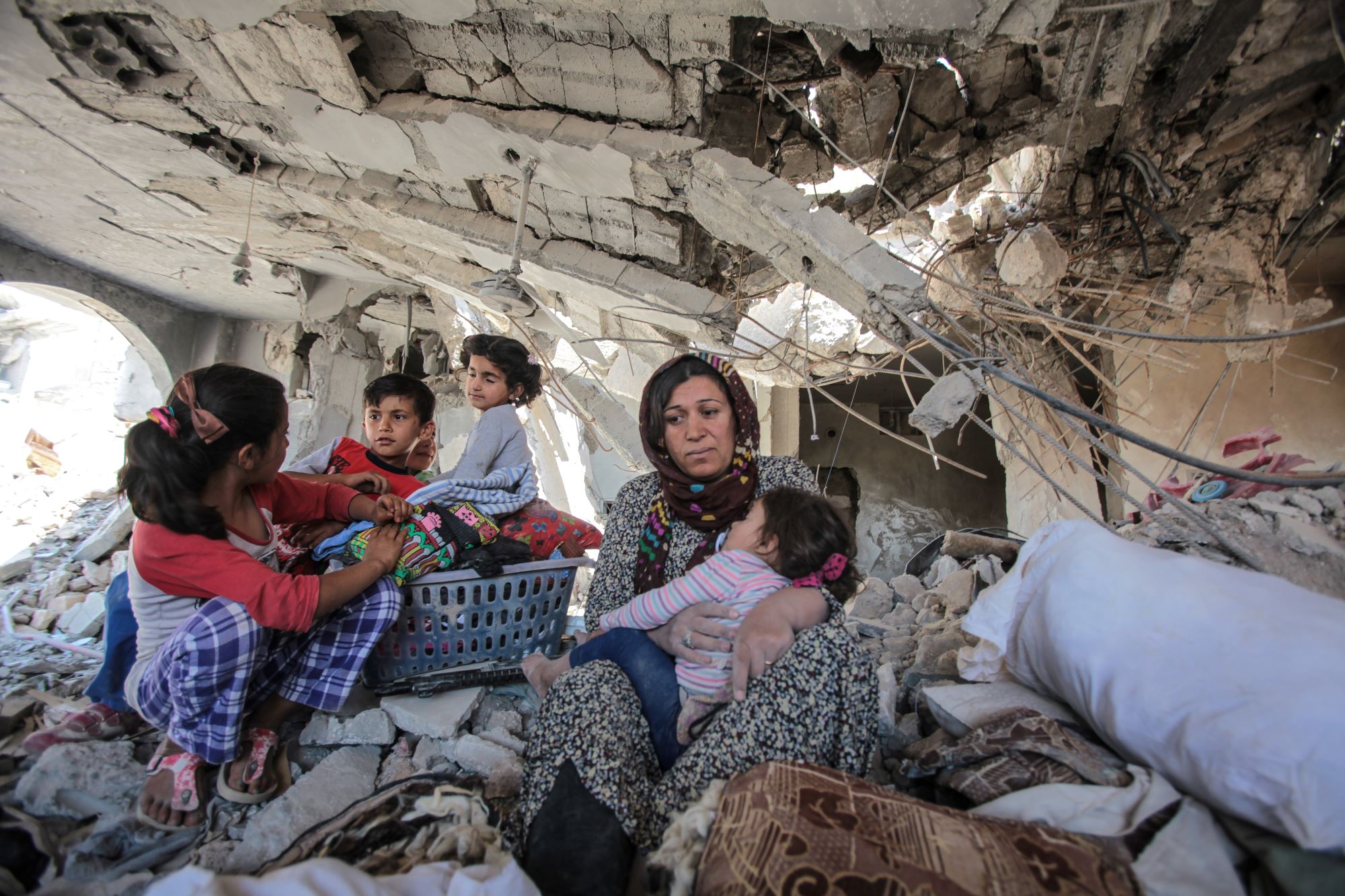
This is a common refrain now in our lives. Of course, the circumstances vary, but this reaction pattern is now common.
When it comes to investigative reporting, and unlike foreign journalists, you cannot “burn yourself for a single news scoop”, because you do not have any backup “home” to run to when you become a wanted person for the various warring groups.
The same situation applies to your sources and the people you interview. They cannot just go into hiding. Doing big investigative reports amounts to having a death sentence hanging over you.
It is too risky to use secret recordings, for example. As a local journalist, you better have a visa and a travel ticket ready before you even start thinking of writing or publishing a major piece revealing a controversial truth that would put any of the factions in Syria in a bad light.
The move of every media activist is monitored. You have to watch out for what you post on social media. Think twice before uploading any pictures to your Facebook page.
As a citizen journalist, you are part of the story. It engulfs all aspects of your daily life
Consider who you speak to and what you say. Be particularly considerate about posting things on the people who love you and care about your safety.
I urge all to consult with their close family members. I make my husband read every controversial article or Facebook post I intend to publish. This is to ensure it would not put me or him in a difficult situation.
For free-minded and independent journalists, this is an excruciating way of working. You constantly have to look over your shoulder. If you want to survive, you definitely cannot publish all the stories you want to.
I jokingly advise my colleagues that they need to create a secure folder on their laptop called “not to be published soon”. Keep these stories there until it becomes safer to publish them.
When war hits your country: A practical guide
For me, journalism is a tool or maybe a skill that provides me with the ability to give a voice to those whom dictators, religious traditions, prejudices and discriminatory attitudes want to silence.
It is a medium to raise awareness, defend freedom of expression, and bring people close to each other by keeping them informed. It is a passion and commitment to those who trusted you with their information. You gain people’s trust when you have the courage to tell the truth, and the compassion to be guided by true feelings of humanity.
Being a journalist in your war-torn homeland comes at a high cost on a professional and emotional level. You are dealing with huge emotional stress.
Even though you might be able to separate these challenges on paper, you will not be able to do so in real life. You have to balance all these different things pulling you in different directions at the same time.
On this note, I end with this series of practical tips:
Personal advice
- Be prepared to accept the possibility of you becoming the news.
- Be ready to sacrifice your personal freedom in return for being able to continue to working from inside the country. This includes not saying and wearing what you want.
- You must come to terms with the fact that you will have losses at the personal, social and financial level. Acknowledging that will help you prepare better for what is coming.
- Put savings aside to cover the unexpected.
- Your family, relatives and friends will be targeted when you publish the truth. They will be used to blackmail you.
- During war, socialising can turn out to be a hazard.
- While on social or family gatherings, for example, watch what you say and who you speak with.
- Trust no one and never share personal information. Protect your privacy.
- Be aware that at any given point you might end up on a wanted list of an armed militia.
- Do not advertise controversial pieces you publish.
- Think twice about how you and your family are perceived. If your wife or mother do not wear a veil, for example, this could be used to label you as “secular” and enemy of an extremist group.
- Labels such as “traitor”, “government agent” and “western spy” will inevitably be thrown at you.
Professional advice
- Focus on the human side of the stories. This might not get your story on the front-pages of international media, as they are usually seeking sexy topics about extremists, but it will get you respect, recognition and some awards as well.
- Your files, pictures, emails and mobile phones are a double-edged sword. Learn to protect them. Take at least a basic digital security training online.
- Be aware that the boundaries between your work and personal life disappear. Before you know it, your social media is all about news (mostly sad ones). Your “friends” become sources.
- Get insured. This will give and your family some peace of mind. Very few organisations insure their local staff. Make sure you seek alternatives. There are some journalism non-governmental organisations (NGOs) that provide it for free.
Handling sources
- Protect your sources by hiding their real identities even if they give you permission to use their names. People do not always think about the consequences of what they tell journalists.
- Be considered when you interview people. Civilians living in a war zone and who lost family members are fragile.
- Phrase your questions thoughtfully to avoid hurting anyone.
- Take time to mingle with them before interviewing them. Drink that cup of tea before you shove a microphone or camera in their face.
- Ask people about their lives. For you, they might just be a story, but they are real people with their own life stories. They want to be heard.
- Locals are your eyes and years. They are like “Google”, “Trip Advisor” and “Maps” all in one. Near frontlines, ask them about clean food, shops, safe roads, story ideas, hospitals and so on.
Dealing with armed groups and checkpoints
- Establish formal relationships with heads of armed groups.
- Ensure you have consent from whoever controls the area you work in. These relationships will be valuable resources for you when in trouble.
- Consult the local population. They can guide if you are unsure about what to say at a checkpoint you want to cross.
- Gather as much information as possible. People will be able to tell you if the checkpoint is controlled by extremists, moderates, thieves, gangs, et cetera. Also, whether they target the media or any other population group.
- Consider if it is safe for you to reveal that you are a journalist.
- Have a sound story if you pretend you are a civilian. For example, I was once at a regime checkpoint. I played dumb blonde to avoid having my camera checked.
- On checkpoints controlled by Islamists, keep calm and let your male colleagues take the lead.
- On ISIL checkpoints, use a different ID. For example, I often used the ID of my colleague’s sister and covered my face.
Being a woman in a war zone
- If you are woman, take even further precautions. We live in a patriarchal society and woman’s behaviour is scrutinised more than that of a man.
- People will question your honour and speak ill of you and your family.
- Be prepared to be attacked if you challenge traditional assumptions related to the social meaning and demands of being a woman in the society you live in. As a woman, you are traditionally expected to be “shy.” You are encouraged not to speak about daring topics or challenging traditions.
- Protect your personal photos. Do not share these. They can be used against you to tarnish your reputation.
Mental and emotional care
- Ensure you have access to psychological help, because you will likely need it. This is a perfectly normal and a healthy need. You will have ups and downs. You will at times question your choice to stay and work in your country when most people have fled. You will feel hopeless and helpless at times.
- Take a break. Switch off your mind for a couple of days.
- Keep hobbies. Music, dance and sports are magical.
- Try to keep some personal space.
- People will count on your help. Get to know your limits. Never make promises you cannot keep.
- Your life is more valuable than any story. It is not worth dying for any story.
- Do not let the desire for fame take over. Most of us work in war zones like Syria because of our passion for this craft. We believe in journalism and its role in making the world a less horrible place.
An earlier version of this article first appeared in the Al Jazeera Media Institute publication, Journalism in Times of War
